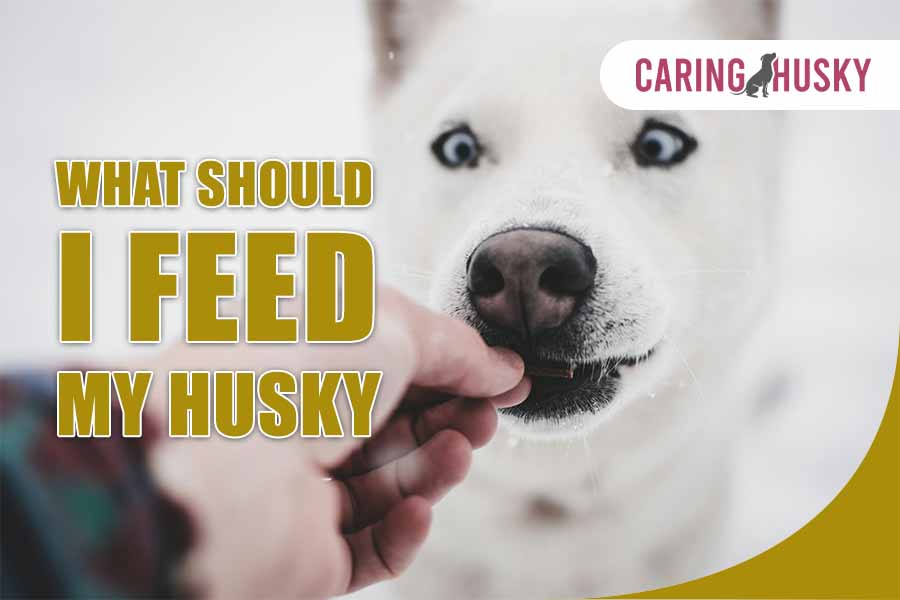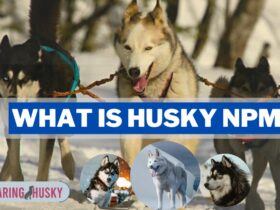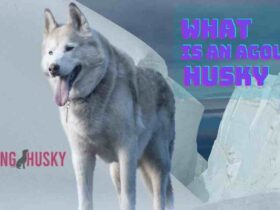Proper nutrition is essential for the health and vitality of every dog breed, and Huskies are no exception. These beautiful and energetic dogs have specific dietary requirements that must be met to ensure they lead happy and healthy lives. Whether you’re a seasoned Husky owner or considering bringing one into your family, understanding what to feed your Husky is crucial. In this article, we will delve into the unique nutritional needs of Huskies, from their puppyhood to their senior years, and provide valuable insights into choosing the right food, preventing dietary issues, and ensuring your Husky’s well-being through proper nutrition.
What should I feed my Husky?
When feeding your Husky, focusing on a balanced and high-quality diet is important. Huskies are active dogs with a unique metabolism, so a diet rich in protein and healthy fats is crucial for their overall health. Look for commercial dog foods with real meat as the primary ingredient and avoid those with excessive fillers or artificial additives. Additionally, consider consulting with your veterinarian or a canine nutritionist for personalized dietary recommendations based on your Husky’s age, activity level, and specific health concerns. Remember to monitor their weight, adjust portions accordingly, and always provide access to fresh water.
The Importance Of Proper Nutrition For Huskies
Proper nutrition is paramount for Huskies, as it directly impacts their health, well-being, and overall quality of life. Here are some key reasons highlighting the significance of providing Huskies with the proper nutrition:
Huskies are known for their high energy levels and need for regular exercise. Proper nutrition ensures they have the necessary fuel to sustain their active lifestyle. A balanced diet rich in nutrients helps them maintain their energy levels for running, hiking, or pulling sleds.
Huskies have a thick double coat that requires proper nutrition to stay healthy and vibrant. Nutrient-rich food promotes skin and coat health, reducing the risk of skin issues and excessive shedding. Omega-3 fatty acids, for example, contribute to a shiny coat.
Huskies can be prone to obesity if not fed correctly. A well-balanced diet with controlled portions helps maintain a healthy weight, reducing the risk of joint problems and other weight-related health issues.
Immune System Support: Proper nutrition strengthens the immune system, helping Huskies resist common illnesses and infections. Essential vitamins and minerals play a crucial role in immune function.
Huskies may have sensitive stomachs, so the right food can help prevent gastrointestinal issues. High-quality, easily digestible ingredients contribute to a healthier digestive system.
Providing your Husky with proper nutrition can extend their lifespan and enhance their overall quality of life. A well-nourished Husky is less likely to experience health problems and may enjoy a longer, more active life.
Nutritional Requirements For Huskies
Huskies, known for their stunning appearance and boundless energy, have specific nutritional requirements for their health and vitality. Understanding these requirements is crucial for providing your Husky with the proper diet. Here are the key nutritional requirements for Huskies:
Protein: Huskies are active dogs with a strong need for protein. Protein is vital for muscle development, repair, and overall body function. Look for dog food that contains high-quality animal protein sources like chicken, turkey, or salmon. Aim for a protein content of around 18-25% in their diet.
Fats: Healthy fats are an important energy source for Huskies, particularly during strenuous activities like running or pulling sleds. Opt for dog foods with moderate fat content (around 10-15%). Look for sources like chicken fat or fish oil, which contribute to a shiny coat.
Carbohydrates: While Huskies don’t require as many carbohydrates as other breeds, they still benefit from complex carbohydrates for sustained energy. Choose dog foods that contain carbohydrates, like brown rice, sweet potatoes, or peas. Limit the amount of filler carbohydrates such as corn or wheat.
Vitamins and Minerals: Ensure your Husky’s diet includes essential vitamins and minerals. Calcium and phosphorus are vital for bone health, while vitamins like A, D, and E support overall well-being. Minerals like zinc and selenium are also important for various bodily functions.
Water: Adequate hydration is critical for Huskies, especially since they can be active in cold and hot climates. Always provide clean, fresh water, and monitor their water intake, especially during exercise.
Portion Control: Huskies can be prone to overeating, so portion control is crucial to prevent obesity. Follow the feeding guidelines on the dog food label and adjust based on your Husky’s activity level and age.
Special Dietary Considerations: Some Huskies may have specific dietary needs or allergies, so they must be aware of food sensitivities and choose appropriate dog food accordingly.
The Role Of Proteins In Husky Nutrition
Proteins are vital in Husky nutrition and essential for their health and well-being. Like all dogs, Huskies have specific protein requirements that should be met to support their active lifestyle and overall health. Here’s a closer look at the role of proteins in Husky nutrition:
Muscle Development and Maintenance:
Proteins are the building blocks of muscles. Huskies are naturally active and athletic dogs, and protein is crucial for developing and maintaining their lean muscle mass. Whether running, playing, or engaging in activities like pulling sleds, sufficient protein intake helps them stay strong and agile.
Tissue Repair:
Protein is essential for repairing and regenerating tissues in the body. Due to their active lifestyle, huskies may experience wear and tear on their muscles and joints. Adequate protein supports the repair of these tissues, reducing the risk of injuries.
Immune Function:
Proteins play a significant role in immune system function. They are necessary to produce antibodies and immune cells that help defend the body against infections and illnesses. A robust immune system is significant for Huskies often exposed to various environmental conditions.
Skin and Coat Health:
Protein is essential for maintaining healthy skin and a glossy coat. Huskies are known for their striking double coat, and proteins provide the amino acids for skin cell renewal and keratin production. This protein contributes to coat health.
Energy Source:
While carbohydrates and fats are also energy sources, protein can be used as an energy source when needed. Huskies, especially during periods of high physical activity, may rely on protein for extra energy.
Enzymes and Hormones:
Proteins produce enzymes and hormones that regulate various physiological processes in the body. These processes include digestion, metabolism, and growth, all essential for a healthy Husky.
Overall Health and Well-Being:
Protein supports Huskies’ overall health and vitality. It helps them recover from exertion, stay active, and resist common illnesses and infections.
What Are Some Feeding Guidelines And Tips For Huskies?
Feeding Huskies requires attention to their unique dietary needs and activity levels to keep them healthy and happy. Here are some feeding guidelines and tips for Huskies:
- Portion Control: Determine the appropriate portion size for your Husky based on factors like age, weight, and activity level. Follow the feeding guidelines on the dog food label as a starting point, but adjust as needed to maintain a healthy weight. Avoid overfeeding, as Huskies can be prone to obesity.
- Feeding Schedule: Establish a consistent feeding schedule. Most Huskies do well with two meals daily, but you can adapt this to your dog’s preference and routine. Avoid free-feeding (leaving food out all day), as it can lead to overeating.
- Select High-Quality Dog Food: Choose dog food that contains real meat as the primary ingredient. Look for options that meet your Husky’s specific life stage (puppy, adult, or senior). Avoid dog foods with excessive fillers, artificial additives, or by-products.
- Monitor Treats and Snacks: Huskies enjoy treats but avoid overdoing them. High-calorie treats can contribute to weight gain. Opt for healthy, low-calorie treats or use small pieces of fruits and vegetables as rewards during training.
- Adjust for Activity Level: Huskies are active dogs, and their calorie needs can vary greatly depending on their activity level. If your Husky is highly active or involved in activities like sledding, consider increasing their food intake accordingly. Conversely, reduce portions for less active Huskies.
- Avoid Table Scraps: Refrain from feeding your Husky human food or table scraps, as some foods can be toxic to dogs or upset their stomachs. Stick to their regular dog food and appropriate dog treats.
- Monitor Body Condition: Regularly assess your Husky’s body condition. You should be able to feel their ribs without excess fat cover, and they should have a defined waist when viewed from above. Adjust their diet accordingly if you notice weight changes.
- Consult a Veterinarian: If you have specific concerns or questions about your Husky’s diet or nutrition, consult a veterinarian or canine nutritionist. They can provide personalized guidance based on your dog’s individual needs.
- Transition Gradually: When changing your Husky’s food, gradually over several days to minimize digestive upset. Mix the new food with the old, gradually increasing the ratio of the new food.
Conclusion
providing the proper nutrition for your Husky is essential to their overall well-being. Understanding their unique dietary needs, selecting high-quality foods, and monitoring their diet throughout their life stages ensures that your Husky remains healthy, active, and happy. Remember that consulting with a veterinarian or a canine nutritionist can be invaluable in tailoring a diet plan that suits your Husky’s requirements. With the proper diet, your Husky will thrive, and you’ll enjoy many joyful years together as companions.
FAQ’s
How do I put my husky on a diet?
To put your Husky on a diet, consult with a veterinarian first to determine the appropriate calorie intake for your dog’s weight loss goals. Gradually transition to high-quality, lower-calorie dog food and follow feeding guidelines. Implement portion control, avoid high-calorie treats, and increase exercise gradually to help them lose weight safely.
Can husky eat rice and chicken?
Yes, Huskies can eat rice and chicken as a diet. It’s a commonly used homemade meal for dogs. Ensure the chicken is cooked, boneless, and skinless. Combine it with cooked rice and perhaps some dog-friendly vegetables for a balanced meal. However, always consult your vet for personalized dietary recommendations.
How much food should a husky eat a day?
The daily food intake for a Husky varies based on age, activity level, and size. On average, adult Huskies may require 1.5 to 2.5 cups of high-quality dog food split into two meals. However, it’s essential to follow specific feeding guidelines on the dog food label and adjust portions according to your Husky’s needs to maintain a healthy weight.







Leave a Reply